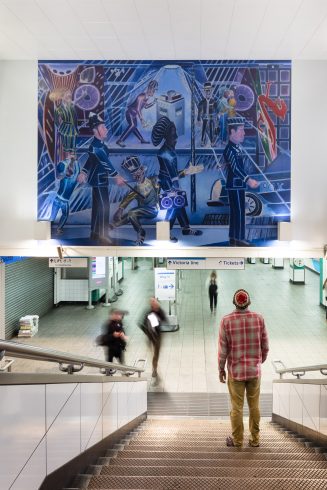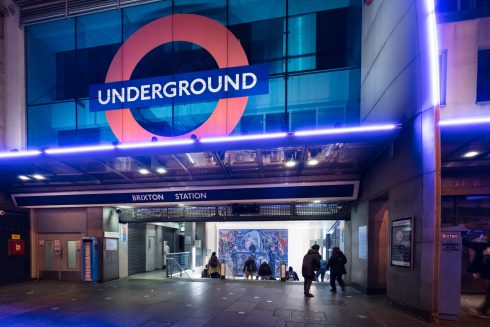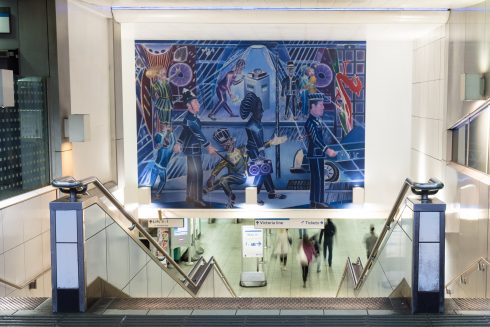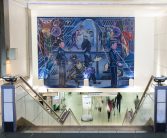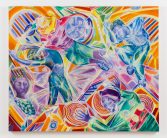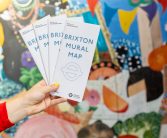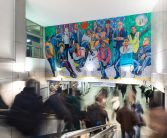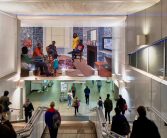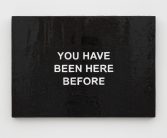See the partners we work with below. Expand each one to see how they process your data. You can object to legitimate interest processing per vendor.
Special Purposes:- Ensure security, prevent and detect fraud, and fix errors
- Deliver and present advertising and content
- Save and communicate privacy choices
Features:- Match and combine data from other data sources
- Link different devices
- Identify devices based on information transmitted automatically
Categories of data:- IP addresses
- Device characteristics
- Device identifiers
- Probabilistic identifiers
- Non-precise location data
- Privacy choices
Data Retention Period:- 360 days
Special Purposes:- Ensure security, prevent and detect fraud, and fix errors
- Deliver and present advertising and content
- Save and communicate privacy choices
Features:- Match and combine data from other data sources
Categories of data:- IP addresses
Data Retention Period:- 365 days
Features:- Match and combine data from other data sources
Categories of data:- Device characteristics
- Browsing and interaction data
Special Purposes:- Ensure security, prevent and detect fraud, and fix errors
- Deliver and present advertising and content
Categories of data:- Browsing and interaction data
- Non-precise location data
Data Retention Period:- 365 days
Special Purposes:- Deliver and present advertising and content
Categories of data:- IP addresses
Special Purposes:- Ensure security, prevent and detect fraud, and fix errors
- Deliver and present advertising and content
- Save and communicate privacy choices
Categories of data:- IP addresses
- Non-precise location data
- Privacy choices
Categories of data:- Browsing and interaction data
- Non-precise location data
Special Purposes:- Ensure security, prevent and detect fraud, and fix errors
- Deliver and present advertising and content
- Save and communicate privacy choices
Features:- Identify devices based on information transmitted automatically
Categories of data:- IP addresses
- Device characteristics
- Device identifiers
- Non-precise location data
- Precise location data
- Privacy choices
Data Retention Period:- 1095 days
Features:- Link different devices
Categories of data:- IP addresses
- Device characteristics
- Device identifiers
- Authentication-derived identifiers
- Browsing and interaction data
- Privacy choices
Your Consent:- Consent expiry: 30 days
- Cookie expiry may be refreshed during the lifetime.
- Tracking method: Cookies and others
- Show details
Special Purposes:- Ensure security, prevent and detect fraud, and fix errors
- Deliver and present advertising and content
- Save and communicate privacy choices
Features:- Match and combine data from other data sources
- Link different devices
Categories of data:- IP addresses
- Device characteristics
- Device identifiers
- Browsing and interaction data
- Non-precise location data
- Precise location data
- Users’ profiles
- Privacy choices
Data Retention Period:- 90 days
Your Consent:- Tracking method: Cookies and others
- Show details
Avar Communications T/A Jobbio
Special Purposes:- Ensure security, prevent and detect fraud, and fix errors
- Deliver and present advertising and content
Features:- Identify devices based on information transmitted automatically
Categories of data:- Device characteristics
- Device identifiers
- Browsing and interaction data
- Non-precise location data
Data Retention Period:- 2000 days
Special Purposes:- Ensure security, prevent and detect fraud, and fix errors
- Deliver and present advertising and content
Features:- Identify devices based on information transmitted automatically
Categories of data:- IP addresses
- Device characteristics
Special Purposes:- Ensure security, prevent and detect fraud, and fix errors
- Deliver and present advertising and content
Features:- Match and combine data from other data sources
- Identify devices based on information transmitted automatically
Categories of data:- User-provided data
- Non-precise location data
Special Purposes:- Ensure security, prevent and detect fraud, and fix errors
- Deliver and present advertising and content
Categories of data:- IP addresses
Data Retention Period:- 360 days
Special Purposes:- Deliver and present advertising and content
Categories of data:- Device characteristics
Special Purposes:- Deliver and present advertising and content
Categories of data:- Browsing and interaction data
Data Retention Period:- 365 days
Features:- Match and combine data from other data sources
Categories of data:- IP addresses
- Device characteristics
Special Purposes:- Ensure security, prevent and detect fraud, and fix errors
- Deliver and present advertising and content
Features:- Match and combine data from other data sources
- Identify devices based on information transmitted automatically
Categories of data:- IP addresses
- Device characteristics
Data Retention Period:- 3650 days
Your Consent:- Consent expiry: 1 year
- Cookie expiry may be refreshed during the lifetime.
- Tracking method: Cookies only
- Show details
Special Purposes:- Ensure security, prevent and detect fraud, and fix errors
- Deliver and present advertising and content
Categories of data:- Non-precise location data
Special Purposes:- Deliver and present advertising and content
Categories of data:- IP addresses
- Device characteristics
- Device identifiers
- Non-precise location data
Special Purposes:- Ensure security, prevent and detect fraud, and fix errors
- Deliver and present advertising and content
Features:- Match and combine data from other data sources
Categories of data:- Non-precise location data
Special Purposes:- Ensure security, prevent and detect fraud, and fix errors
Features:- Identify devices based on information transmitted automatically
Categories of data:- IP addresses
- Browsing and interaction data
- Non-precise location data
Data Retention Period:- 30 days
Your Consent:- Consent expiry: 1 year 6 hours 40 minutes
- Cookie expiry may be refreshed during the lifetime.
- Tracking method: Cookies only
- Show details
Features:- Match and combine data from other data sources
Categories of data:- IP addresses
- Device characteristics
- Device identifiers
- Browsing and interaction data
- Non-precise location data
Data Retention Period:- 1095 days
Special Purposes:- Ensure security, prevent and detect fraud, and fix errors
- Deliver and present advertising and content
- Save and communicate privacy choices
Categories of data:- IP addresses
- Device characteristics
- Probabilistic identifiers
- Browsing and interaction data
- Non-precise location data
- Privacy choices
Data Retention Period:- 45 days
Special Purposes:- Ensure security, prevent and detect fraud, and fix errors
- Deliver and present advertising and content
Categories of data:- Browsing and interaction data
Special Purposes:- Ensure security, prevent and detect fraud, and fix errors
- Deliver and present advertising and content
- Save and communicate privacy choices
Categories of data:- IP addresses
- Authentication-derived identifiers
- Browsing and interaction data
- User-provided data
Data Retention Period:- 30 days
Special Purposes:- Ensure security, prevent and detect fraud, and fix errors
Categories of data:- IP addresses
- Device characteristics
- Device identifiers
- Browsing and interaction data
- Privacy choices
Data Retention Period:- 1095 days
Your Consent:- Consent expiry: 5 years
- Cookie expiry may be refreshed during the lifetime.
- Tracking method: Cookies only
- Show details
Special Purposes:- Ensure security, prevent and detect fraud, and fix errors
Categories of data:- IP addresses
- Device characteristics
- Device identifiers
- Browsing and interaction data
Data Retention Period:- 730 days
Special Purposes:- Ensure security, prevent and detect fraud, and fix errors
Features:- Match and combine data from other data sources
Categories of data:- IP addresses
- Device characteristics
- Non-precise location data
Data Retention Period:- 30 days
Grabit Interactive Media Inc dba KERV Interctive
Special Purposes:- Ensure security, prevent and detect fraud, and fix errors
- Deliver and present advertising and content
Categories of data:- IP addresses
- Device characteristics
Data Retention Period:- 1825 days
Categories of data:- IP addresses
- Device characteristics
Special Purposes:- Ensure security, prevent and detect fraud, and fix errors
Features:- Match and combine data from other data sources
- Identify devices based on information transmitted automatically
Categories of data:- IP addresses
- Device characteristics
- Device identifiers
- Probabilistic identifiers
- Non-precise location data
Data Retention Period:- 1095 days
illuma technology limited
Categories of data:- Browsing and interaction data
Integral Ad Science (incorporating ADmantX)
Special Purposes:- Ensure security, prevent and detect fraud, and fix errors
- Deliver and present advertising and content
- Save and communicate privacy choices
Features:- Match and combine data from other data sources
- Identify devices based on information transmitted automatically
Categories of data:- IP addresses
- Device characteristics
- Browsing and interaction data
- Non-precise location data
- Privacy choices
Data Retention Period:- 30 days
Special Purposes:- Deliver and present advertising and content
Categories of data:- IP addresses
- Browsing and interaction data
- Non-precise location data
Special Purposes:- Ensure security, prevent and detect fraud, and fix errors
- Deliver and present advertising and content
Categories of data:- Browsing and interaction data
Data Retention Period:- 3650 days
Your Consent:- Tracking method: Cookies and others
- Show details
Special Purposes:- Ensure security, prevent and detect fraud, and fix errors
- Deliver and present advertising and content (Data Retention Period: 42 days)
Features:- Identify devices based on information transmitted automatically
Categories of data:- IP addresses
- Device characteristics
- Probabilistic identifiers
- Non-precise location data
Data Retention Period:- 3650 days
Your Consent:- Consent expiry: 30 days
- Tracking method: Cookies only
- Show details
Special Purposes:- Ensure security, prevent and detect fraud, and fix errors
- Deliver and present advertising and content
Categories of data:- IP addresses
- Device characteristics
- Privacy choices
Special Purposes:- Ensure security, prevent and detect fraud, and fix errors
Categories of data:- IP addresses
- Device characteristics
- Browsing and interaction data
- Non-precise location data
Marketing Science Consulting Group, lnc.
Special Purposes:- Ensure security, prevent and detect fraud, and fix errors
Categories of data:- Device characteristics
- Browsing and interaction data
- Non-precise location data
Special Purposes:- Ensure security, prevent and detect fraud, and fix errors
- Deliver and present advertising and content
- Save and communicate privacy choices
Categories of data:- IP addresses
- Device characteristics
- Browsing and interaction data
- Non-precise location data
- Privacy choices
Data Retention Period:- 30 days
Special Purposes:- Deliver and present advertising and content
Features:- Match and combine data from other data sources
Categories of data:- IP addresses
- Device characteristics
- Device identifiers
- Browsing and interaction data
- Non-precise location data
- Privacy choices
Your Consent:- Tracking method: Cookies and others
- Show details
Special Purposes:- Ensure security, prevent and detect fraud, and fix errors
- Deliver and present advertising and content
Categories of data:- IP addresses
- Device characteristics
- User-provided data
- Non-precise location data
Data Retention Period:- 2920 days
Categories of data:- Device characteristics
- Non-precise location data
Your Consent:- Consent expiry: 1 year
- Tracking method: Cookies only
- Show details
Online Media Solutions LTD
Categories of data:- IP addresses
- Device characteristics
- Privacy choices
Data Retention Period:- 30 days
Special Purposes:- Ensure security, prevent and detect fraud, and fix errors
- Deliver and present advertising and content
Categories of data:- Device characteristics
Special Purposes:- Deliver and present advertising and content
Features:- Identify devices based on information transmitted automatically
Categories of data:- IP addresses
- Device characteristics
- Device identifiers
- Authentication-derived identifiers
- User-provided data
- Non-precise location data
Special Purposes:- Ensure security, prevent and detect fraud, and fix errors
- Deliver and present advertising and content (Data Retention Period: 1095 days)
- Save and communicate privacy choices
Categories of data:- IP addresses
- Device characteristics
- Browsing and interaction data
- Privacy choices
Data Retention Period:- 3650 days
Categories of data:- IP addresses
- Device characteristics
- Privacy choices
Data Retention Period:- 30 days
Special Purposes:- Ensure security, prevent and detect fraud, and fix errors
- Deliver and present advertising and content
Features:- Identify devices based on information transmitted automatically
Categories of data:- IP addresses
- Device characteristics
- Device identifiers
- Probabilistic identifiers
- Browsing and interaction data
Data Retention Period:- 365 days
Public Good Software Inc.
Special Purposes:- Ensure security, prevent and detect fraud, and fix errors
- Deliver and present advertising and content
Categories of data:- Browsing and interaction data
- User-provided data
- Non-precise location data
Data Retention Period:- 1825 days
Realtime Communication Sthlm AB
Special Purposes:- Ensure security, prevent and detect fraud, and fix errors
- Deliver and present advertising and content (Data Retention Period: 30 days)
- Save and communicate privacy choices
Categories of data:- IP addresses
- Browsing and interaction data
- Non-precise location data
- Privacy choices
Redbranch, Inc dba Fraudlogix
Special Purposes:- Ensure security, prevent and detect fraud, and fix errors
Categories of data:- IP addresses
- Device characteristics
Data Retention Period:- 4320 days
Special Purposes:- Ensure security, prevent and detect fraud, and fix errors
- Deliver and present advertising and content
- Save and communicate privacy choices
Features:- Identify devices based on information transmitted automatically
Categories of data:- IP addresses
- Device characteristics
- Probabilistic identifiers
- Browsing and interaction data
- User-provided data
- Non-precise location data
- Privacy choices
Data Retention Period:- 30 days
Your Consent:- Consent expiry: 1 year 1 day
- Cookie expiry may be refreshed during the lifetime.
- Tracking method: Cookies and others
- Show details
Categories of data:- Privacy choices
Data Retention Period:- 90 days
Special Purposes:- Ensure security, prevent and detect fraud, and fix errors
- Deliver and present advertising and content
- Save and communicate privacy choices
Categories of data:- IP addresses
- Device characteristics
- Browsing and interaction data
- Non-precise location data
Data Retention Period:- 3 days
Special Purposes:- Ensure security, prevent and detect fraud, and fix errors
- Deliver and present advertising and content
Features:- Link different devices
- Identify devices based on information transmitted automatically
Categories of data:- IP addresses
- Device identifiers
Data Retention Period:- 30 days
Your Consent:- Consent expiry: Session
- Tracking method: Cookies only
- Show details
Special Purposes:- Ensure security, prevent and detect fraud, and fix errors
- Deliver and present advertising and content
Features:- Link different devices
Categories of data:- IP addresses
- Probabilistic identifiers
- Browsing and interaction data
Data Retention Period:- 60 days
Your Consent:- Consent expiry: 60 days
- Tracking method: Cookies only
- Show details
Special Purposes:- Deliver and present advertising and content
Categories of data:- IP addresses
- Device characteristics
Silverbullet Data Services Group
Special Purposes:- Deliver and present advertising and content
Categories of data:- IP addresses
Special Purposes:- Ensure security, prevent and detect fraud, and fix errors
- Deliver and present advertising and content
Features:- Match and combine data from other data sources
- Identify devices based on information transmitted automatically
Categories of data:- User-provided data
- Non-precise location data
Special Purposes:- Ensure security, prevent and detect fraud, and fix errors
Features:- Match and combine data from other data sources
- Link different devices
- Identify devices based on information transmitted automatically
Categories of data:- IP addresses
- Device characteristics
- User-provided data
- Non-precise location data
- Privacy choices
Your Consent:- Consent expiry: 90 days
- Cookie expiry may be refreshed during the lifetime.
- Tracking method: Cookies and others
- Show details
Special Purposes:- Ensure security, prevent and detect fraud, and fix errors
- Deliver and present advertising and content
Features:- Identify devices based on information transmitted automatically
Categories of data:- IP addresses
- Device characteristics
- Browsing and interaction data
- Non-precise location data
- Privacy choices
Special Purposes:- Deliver and present advertising and content
Categories of data:- IP addresses
Data Retention Period:- 7 days
Special Purposes:- Ensure security, prevent and detect fraud, and fix errors
- Deliver and present advertising and content
- Save and communicate privacy choices
Categories of data:- IP addresses
- Device characteristics
Data Retention Period:- 4320 days
Special Purposes:- Deliver and present advertising and content
Categories of data:- IP addresses
- Device identifiers
Sqreem Technologies Private Limited
Special Purposes:- Ensure security, prevent and detect fraud, and fix errors
- Deliver and present advertising and content
Features:- Identify devices based on information transmitted automatically
Categories of data:- IP addresses
- Device identifiers
Data Retention Period:- 180 days
Special Purposes:- Deliver and present advertising and content
Categories of data:- IP addresses
Special Purposes:- Ensure security, prevent and detect fraud, and fix errors
- Deliver and present advertising and content
Categories of data:- IP addresses
Data Retention Period:- 90 days
Special Purposes:- Ensure security, prevent and detect fraud, and fix errors
- Deliver and present advertising and content
- Save and communicate privacy choices
Features:- Identify devices based on information transmitted automatically
Categories of data:- IP addresses
- Device identifiers
- Probabilistic identifiers
Data Retention Period:- 3650 days
Special Purposes:- Ensure security, prevent and detect fraud, and fix errors
Categories of data:- IP addresses
Categories of data:- Non-precise location data
Special Purposes:- Ensure security, prevent and detect fraud, and fix errors
- Deliver and present advertising and content
Categories of data:- Device characteristics
- Device identifiers
Data Retention Period:- 1800 days
Your Consent:- Tracking method: Cookies and others
- Show details
Visarity Technologies GmbH
Special Purposes:- Ensure security, prevent and detect fraud, and fix errors
- Deliver and present advertising and content
- Save and communicate privacy choices
Categories of data:- IP addresses
Data Retention Period:- 730 days
Special Purposes:- Deliver and present advertising and content
Categories of data:- IP addresses
- Device characteristics
Data Retention Period:- 7 days
Special Purposes:- Ensure security, prevent and detect fraud, and fix errors
- Deliver and present advertising and content
Categories of data:- IP addresses
- Device characteristics
- Device identifiers
- User-provided data
- Non-precise location data
- Precise location data
- Privacy choices
Data Retention Period:- 90 days
Your Consent:- Consent expiry: 90 days
- Tracking method: Cookies and others
- Show details
Special Purposes:- Ensure security, prevent and detect fraud, and fix errors
- Deliver and present advertising and content
Categories of data:- IP addresses
- Browsing and interaction data
Special Purposes:- Ensure security, prevent and detect fraud, and fix errors
- Deliver and present advertising and content
Categories of data:- IP addresses
- Device characteristics
- Non-precise location data
Data Retention Period:- 4320 days
Special Purposes:- Ensure security, prevent and detect fraud, and fix errors
Categories of data:- IP addresses
- Device characteristics
- Browsing and interaction data
- Non-precise location data
- Privacy choices
Data Retention Period:- 90 days
Your Consent:- Tracking method: Cookies and others
- Show details
Special Purposes:- Ensure security, prevent and detect fraud, and fix errors
- Deliver and present advertising and content
Categories of data:- IP addresses
- Device characteristics
- Device identifiers
- Privacy choices
Data Retention Period:- 1095 days
Your Consent:- Consent expiry: 90 days
- Cookie expiry may be refreshed during the lifetime.
- Tracking method: Cookies and others
- Show details
Special Purposes:- Ensure security, prevent and detect fraud, and fix errors
- Deliver and present advertising and content
Categories of data:- IP addresses
- Device characteristics
- Browsing and interaction data
Data Retention Period:- 30 days
